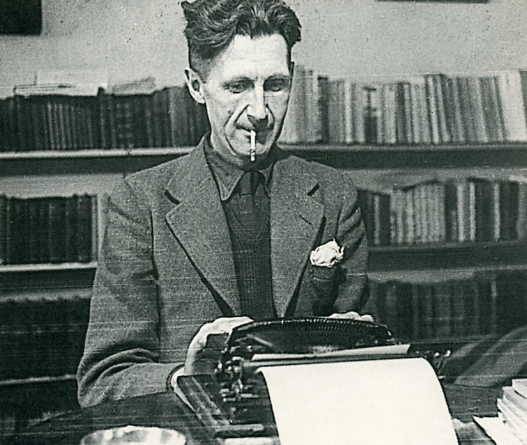Blog Post
Orwell’s Final Days
By Jonathon Van Maren
For a man who breathed his last at the young age of 46, Eric Arthur Blair — better known as George Orwell — had an almost unparalleled impact on the Anglosphere. The journalist, novelist, and diarist has been read by generations of schoolchildren, and his name is incessantly invoked by politicians from all sides of the spectrum to accuse their opponents of the “Orwellian” practices of state surveillance, gaslighting, mob trial, and more. He probably would have hated them all.

Orwell was born to a British colonial civil servant eastern India on June 25, 1903. He was sent back to England to be educated at Eton, after which he launched his career serving first in the Indian Imperial Police in Burma. Orwell resigned from the force in 1927 to become a writer. His first book, Down and Out in Paris and London, was published in 1933 under the pseudonym George Orwell in order to avoid embarrassing his family with his exploits. Burmese Days followed in 1934.
Orwell’s political affiliations changed as often as his travel destinations. By the late 1920s he was an anarchist, but by the 1930s he’d become a socialist. In 1936, he was commissioned to write an account of the grinding poverty of the jobless miners of northern England, published in 1937 under the title The Road to Wigan Pier. Later in 1936, he traveled to Spain to fight Franco and the Nationalists, took a bullet in the throat, and fled, fearing that the Soviet-backed communists would kill him. His Spanish experience transformed Orwell into a prescient and passionate anti-Stalinist, and he summarized his brief war experiences in Homage to Catalonia.
During the Second World War, Orwell worked on propaganda for the BBC. It was then that his writing career exploded. He picked up a literary editorship at the Tribune, and his searing expose of the absurdities of Stalin’s murderous regime, Animal Farm, was published in 1945. His second book targeting totalitarianism, 1984, was published in 1949. It would become one of the few novels that would redefine the way we speak, introducing now-ubiquitous phrases such as “newspeak” and “Big Brother.” By this point, Orwell had nearly worked himself to death, and he died of tuberculosis on January 21, 1950. He didn’t live long enough to witness the phenomenal impact his work would have over the ensuing decades.
A son’s memories
Almost everyone who knew Orwell has long ago followed him into the grave — all except one. Most are unaware that Eric Blair and his wife adopted a son, and Richard Horatio Blair — himself now an elderly man of 75-years-old, still has a handful of memories from the few years he spent with his famous father. It took me a long time to track him down, but when I finally reached him, Blair agreed to share what he remembered about the last days of George Orwell.
READ THE REST OF THIS COLUMN AT THE EUROPEAN CONSERVATIVE








